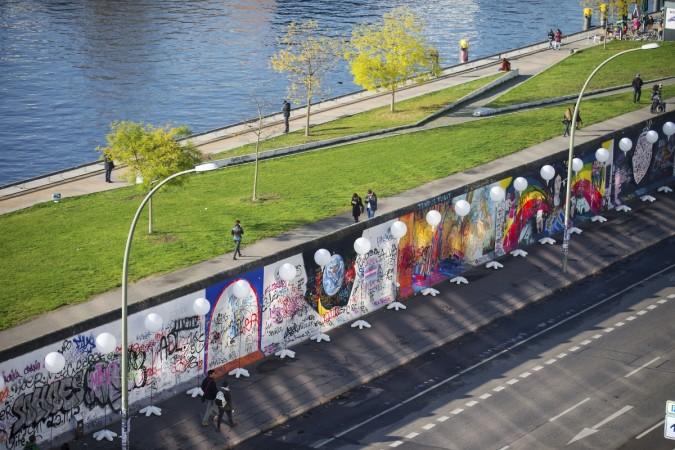
Come Sunday, it will be 25 years since the collapse of the Berlin Wall, but ask the former East Germans whether a unified Germany is cause for celebration? A large number might just be seething with bitterness.
Thousands who were locked up for their political views, or had their children seized because the State did not consider them to be fit parents, are still deeply distressed - their condition aggravated by the fact that justice and recognition is yet to be granted, says a group lobbying for change.
"Of course anniversaries are a chance to examine the past and commemorate the change from dictatorship to democracy," said Rainer Wagner, head of the UOKG Umbrella Group for the Victims of Communist Tyranny.
"But it is chilling to see all these speeches on the one hand, and on the other a state and society which is hesitant to pay compensation or bring former aggressors to justice."
Wanting to leave was not an option - around 250,000 were rounded up on political grounds from 1945-1989. Millions fled before the sealing of the border; those who could not were prevented from doing so because of their antecedents and beliefs.
The unification of Germany lead to an increase in the workload of the new government, who vowed to investigate the crimes of the former East, promising to rehabilate those who had been denied.
Compensation
At a discussion evening on the effects of persecution where thousands are expected to attend a anniversary show on Sunday - some former victims found it tough to come up with any words.
Those who could, described how hard it was to convince their children that political opposition had been the right path when former party members still enjoyed high status.
A series of rehabilitation laws have cleared the criminal records of political prisoners and granted them 306 euros ($380) per month of imprisonment - along with a "victims pension" of 250 euros a month if they were in prison longer than 180 days and deemed to be in hardship today. Many see that as a pitiful amount, given their hours of forced labour in prison.
Forgotten Victims
Ninety minutes from Berlin is the provincial city of Cottbus, whose forbidding, 19th century-built penitentiary served as a prison for both the Nazis and the East Germans.
Many of those still looking for a family member say they feel forgotten because their fates have not been publicly recognised or compensated.
They are not the only group to suffer in this way: Germany is still investigating, for example, medical tests carried out on East German hospital patients on behalf of Western pharmaceutical firms. The first findings are due late next year.
Cottbus is now a museum owned and run by former inmates of whom most were incarcerated on political grounds. Amid the displays is a tiny white knitted hat worn by the newborn baby that Margot Rothert was forced to give up for adoption after being imprisoned for "asocial behaviour" - wanting to leave for the West.
(With inputs from Reuters)















